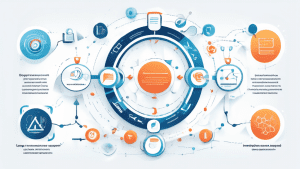In today’s digital landscape, Application Programming Interfaces (APIs) serve as the backbone of seamless data exchange and system integration. Advanced API access unlocks a realm of possibilities, empowering businesses to automate processes, streamline workflows, and gain deeper insights from their data. This article delves into the intricacies of advanced API access, exploring its benefits, implementation, and real-world applications.
Understanding API Basics
Before diving into advanced concepts, it’s crucial to grasp the fundamentals of APIs. An API acts as an intermediary, enabling communication between different software systems. It defines a set of rules and specifications that dictate how data can be accessed and manipulated.
Types of APIs
APIs come in various flavors, each catering to specific use cases. Common types include:
- REST APIs: REST (Representational State Transfer) APIs are widely used due to their simplicity and reliance on standard HTTP methods like GET, POST, PUT, and DELETE.
- SOAP APIs: SOAP (Simple Object Access Protocol) APIs employ XML for data exchange and offer greater complexity and extensibility compared to REST.
- GraphQL APIs: GraphQL provides a more efficient and flexible approach to data querying, allowing clients to specify the exact data they need.
Advanced API Access: Unveiling the Potential
Advanced API access goes beyond basic data retrieval, granting developers finer control and deeper integration capabilities. This includes:
- Custom Endpoints: Tailoring API endpoints to specific needs, enabling the retrieval and manipulation of data in unique ways.
- Webhooks: Leveraging webhooks to receive real-time notifications and updates from the API provider, fostering proactive responses to data changes.
- OAuth 2.0: Implementing robust authorization mechanisms like OAuth 2.0 to secure API access and ensure data privacy.
- Rate Limiting and Throttling: Controlling API request rates to prevent abuse and ensure optimal performance for all users.
- API Versioning: Managing API updates effectively through versioning, preventing disruptions for existing integrations as the API evolves.
Benefits of Advanced API Access
The advantages of embracing advanced API access are manifold:
- Enhanced Automation: Advanced APIs facilitate complex automation workflows, streamlining processes and reducing manual intervention.
- Data-Driven Insights: Accessing and analyzing granular data through APIs empowers businesses to derive meaningful insights and make informed decisions.
- Improved Efficiency: Streamlining data exchange and integration enhances overall efficiency, saving time and resources.
- Innovation and Scalability: Advanced APIs fuel innovation by enabling the creation of new applications and integrations, fostering scalability and growth.
Implementation and Best Practices
Implementing advanced API access requires careful planning and adherence to best practices:
- Thorough Documentation: Maintaining clear and comprehensive API documentation is essential for developers to understand its functionality and usage.
- Security First: Prioritizing security measures such as authentication, authorization, and input validation to safeguard data and prevent unauthorized access.
- Testing and Monitoring: Rigorous testing and ongoing monitoring ensure API reliability and identify potential issues promptly.
- Version Control: Employing version control mechanisms to manage API updates and maintain compatibility with existing integrations.
Real-World Applications
Advanced API access finds its application across diverse industries and use cases:
- E-commerce: Integrating with payment gateways, shipping providers, and inventory management systems to streamline operations.
- Social Media: Building social media management tools, analyzing user engagement, and automating content publishing.
- Finance: Accessing financial data, automating transactions, and developing personalized financial applications.
- Healthcare: Integrating with electronic health records (EHRs), managing patient data, and facilitating telehealth services.
Conclusion
Advanced API access unlocks a world of possibilities, empowering businesses to harness the full potential of data integration and automation. By embracing advanced concepts, adhering to best practices, and exploring real-world applications, organizations can leverage APIs to drive efficiency, innovation, and growth.
Note: Zing Business Systems provides done-for-you solutions for Google Business Profiles or provides ideas and solutions for the DIY business owner.






No comments! Be the first commenter?